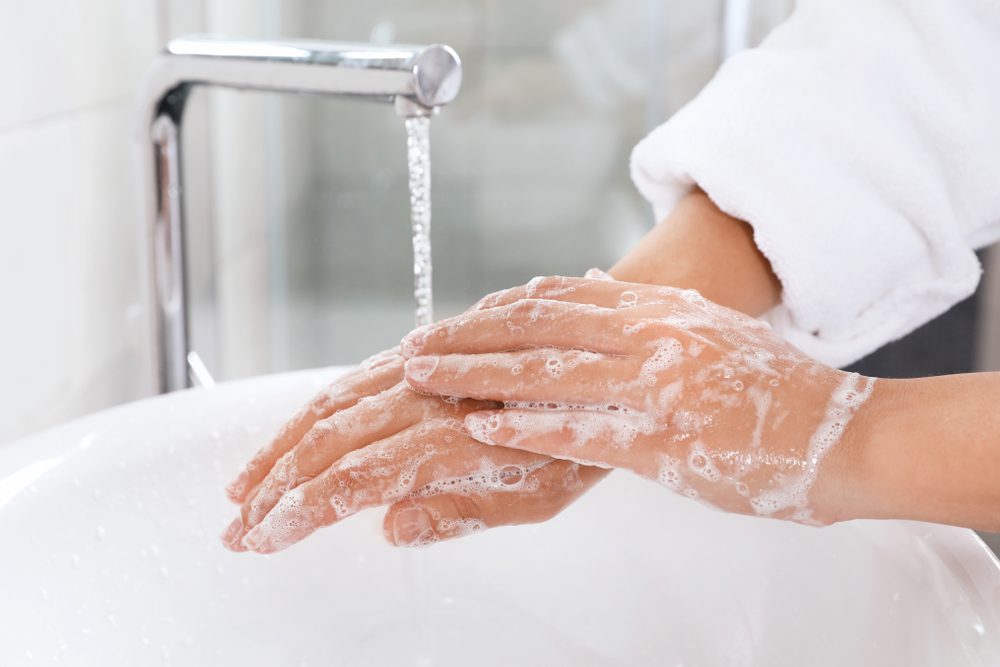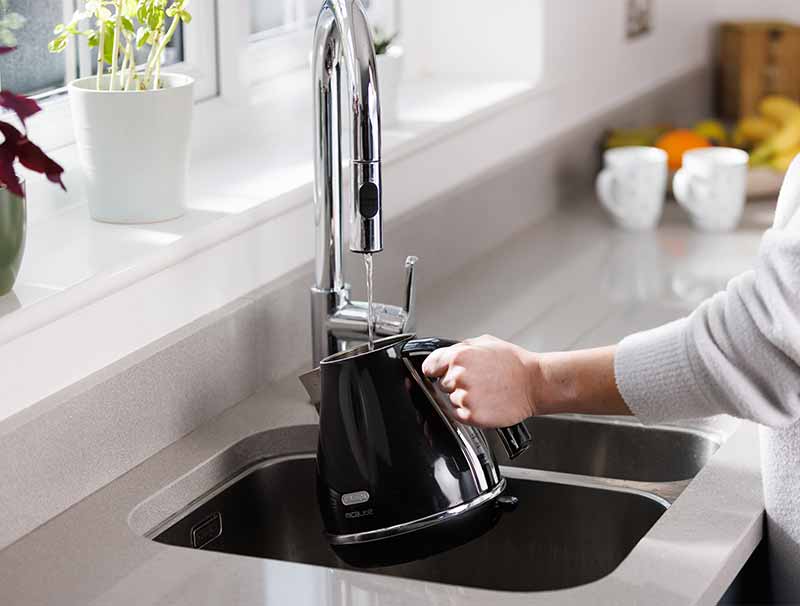Our Complete Advice to Fixing Low Water Pressure in Your Home
Our Complete Advice to Fixing Low Water Pressure in Your Home
Blog Article
What're your opinions about 9 Reasons for Low Water Pressure in Your House?

Low tide pressure in your house can be an irritating trouble, impacting every little thing from showering to washing recipes. If you're experiencing weak water flow, there are several feasible causes and services to discover. In this guide, we'll talk about typical factors for low water pressure and sensible steps to deal with the concern successfully.
Intro to Low Tide Pressure
Low water pressure happens when the flow of water from your taps, showers, and various other fixtures is weaker than common. This can make daily jobs more difficult and much less efficient. Recognizing the causes of low water pressure is vital to locating the appropriate option.
Usual Causes of Low Water Stress
Faulty Pressure Regulatory Authorities
Stress regulators are responsible for maintaining consistent water pressure in your home. If they malfunction, it can lead to low tide stress or unequal flow throughout the house.
Municipal Water System Issues
In some cases, the problem exists outside your home. Local water issues, such as main line leaks or upkeep work, can briefly reduce water pressure in your location.
Pipeline Obstructions
Gradually, pipelines can come to be blocked with mineral deposits, sediment, or debris, restricting the circulation of water. This is a typical problem in older homes with galvanized steel pipelines.
Rust
Rust within pipelines can lead to leakages and lowered water stress. Corrosion accumulation can tighten water circulation, particularly in maturing plumbing systems.
How to Detect Low Tide Stress
Checking Pipelines
Inspect noticeable pipelines for indicators of leaks, corrosion, or blockages. Pay attention to any kind of unusual audios, such as knocking or rattling pipes, which might indicate concerns within the plumbing system.
Consulting with a Plumber
If you're unable to pinpoint the root cause of low water stress, think about employing an expert plumber to perform a detailed evaluation. They can determine underlying problems and recommend proper solutions.
Examining Taps and Fixtures
Beginning by checking the water pressure at various faucets and fixtures throughout your home. If the problem is isolated to certain locations, it may indicate local problems.
Do It Yourself Solutions to Fix Low Water Pressure
Flushing Water Heater
Debris build-up in the hot water heater can limit flow and lower efficiency. Purging the tank periodically aids get rid of sediment and maintain optimum efficiency.
Checking Stress Regulator
Make sure that the stress regulatory authority is functioning correctly. Changing or changing the regulator can assist bring back appropriate water pressure throughout your home.
Cleansing Aerators and Showerheads
Mineral deposits can collect in aerators and showerheads, decreasing water circulation. Get rid of and cleanse these components routinely to improve water pressure.
Clearing Clogs in Pipes
For small obstructions, attempt utilizing a plumbing serpent or chemical drain cleaner to clear blockages in pipes. Be cautious when making use of chemicals and adhere to safety and security standards.
When to Call a Specialist Plumber
If do it yourself initiatives stop working to settle the problem or if you think considerable plumbing troubles, it's best to seek aid from a qualified plumber. They have the knowledge and devices to deal with complex issues safely and successfully.
Safety Nets to Keep Water Pressure
Installing a Pressure Booster
Consider installing a stress booster pump to improve water stress in locations with constantly low flow. This can be especially beneficial for multi-story homes or buildings with high-demand fixtures.
Tracking Water Use
Be mindful of water usage routines and stay clear of ill-using the plumbing system. Basic modifications, such as astonishing showers and washing lots, can aid preserve appropriate water pressure.
Normal Upkeep
Schedule regular upkeep for your plumbing system to stop concerns such as deterioration, leaks, and clogs. Addressing small problems early can aid prevent even more considerable repairs in the future.
Final thought
Handling low tide pressure can be aggravating, but identifying the underlying reasons and executing ideal options can bring back optimum flow throughout your home. Whether it's cleaning up aerators, checking pipes, or seeking advice from a plumber, taking aggressive actions can make certain a constant supply of water for your daily needs.
How to Fix Low Water Pressure In Your Home
Municipal Water Supply Issues
Scheduled maintenance, high demand, and water main breaks are all potential causes for low water pressure within a city or county’s water lines. While there’s not much you can do to personally fix a problem with your city or county’s water supply system, you can play a big role in documenting the issue and alerting those who can.
How to fix it:
Ask your neighbors if they are experiencing any issues with low water pressure. If multiple homes are affected, it’s likely related to the city’s water line. Contact the local Water Authority to see if there is any maintenance taking place that might be affecting your supply. Also let them know of your specific issues. If other homeowners report the same issues, they’ll know that there could be a larger issue to look into. Faulty Fixtures
A damaged or clogged shower head, faucet or appliance is the first thing we’d suggest checking, especially if low water pressure appears to be isolated to a specific area of your home.
How to fix it:
First, turn off the main water supply to your home. Check the affected appliances for build-up or debris. In the case of a faucet, you can simply unscrew the aerator at the tip of the faucet. Showerheads should be fully detached from the water pipe. While the appliances are detached, you may want to check the water supply to determine if the fixtures were in fact the issue. To clean, soak the showerhead or aerator in vinegar and brush off any visible debris. Reattach the fixtures and check the water pressure again. If it is still low, there is likely a deeper issue at hand, which can be determined by a professional plumber. Pipe Obstructions
Mineral deposits, rust or other debris within water pipes can lead to blockages or corrosion over time.
How to fix it:
When you think of a clog, you probably think of a drain clog. While there are many DIY solutions to clearing a drain, clogs in a water pipe will almost always require the help of a professional plumber. A plumber will be able to locate the affected pipe and clean out any debris or mineral deposit buildup. In severe cases, the pipe may need to be replaced. Your plumber might also recommend a water softening system to remove the minerals from your home’s water supply that can contribute to pipe blockages over time.
Plumbing Leak
Undetected water line leaks can divert water away from your residential pipes, reducing the water pressure in your fixtures.
How to fix it:
Check your water meter by turning off all water sources and monitoring the meter for any movement, which could be a clear indicator of a potential leak. Check all visible pipes for signs of leaking, including water stains, active dripping or damp spots around the pipe. Inspect fixtures, including faucets and showerheads, for any drips. Test the pressure but recording the pressure with the main water valve shut off. Leave off for a few hours and test again. A significant drop in pressure is a clear sign of a leak. https://kiddcoplumbing.com/plumbing-blog/how-to-fix-low-water-pressure/

As an avid reader on 9 Reasons for Low Water Pressure in Your House, I thought sharing that chunk was a good idea. Are you aware of somebody else who is sincerely interested in the subject? Take a moment to share it. Thank you so much for taking the time to read it.
Click Here Report this page